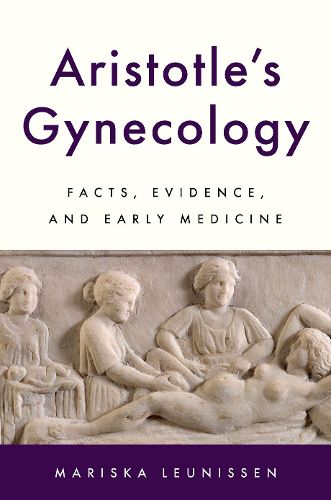Readings Newsletter
Become a Readings Member to make your shopping experience even easier.
Sign in or sign up for free!
You’re not far away from qualifying for FREE standard shipping within Australia
You’ve qualified for FREE standard shipping within Australia
The cart is loading…






In Aristotle's Gynecology, Mariska Leunissen examines Aristotle's methods for the establishment of gynecological facts within his natural science, arguing that many of the gynecological phenomena at stake, such as menstruation and the nature of menstrual blood, the role of female pleasure during sex and women's experiences of erotic dreams, and their knowledge of conception and their experiences of (false) pregnancy and childbirth, were-mostly for socio-cultural reasons-not at all or not immediately accessible for a male natural scientific observer such as Aristotle. Given this lack of immediate empirical evidence, Aristotle employed alternative methods for the establishment of facts-such as relying on signs and circumstantial empirical evidence or using analogical and probabilistic reasoning-and relied heavily on existing expert reports, such as mainly early medical sources but also sometimes verbal reports from women themselves. Moreover, Aristotle used a
$9.00 standard shipping within Australia
FREE standard shipping within Australia for orders over $100.00
Express & International shipping calculated at checkout
Stock availability can be subject to change without notice. We recommend calling the shop or contacting our online team to check availability of low stock items. Please see our Shopping Online page for more details.
In Aristotle's Gynecology, Mariska Leunissen examines Aristotle's methods for the establishment of gynecological facts within his natural science, arguing that many of the gynecological phenomena at stake, such as menstruation and the nature of menstrual blood, the role of female pleasure during sex and women's experiences of erotic dreams, and their knowledge of conception and their experiences of (false) pregnancy and childbirth, were-mostly for socio-cultural reasons-not at all or not immediately accessible for a male natural scientific observer such as Aristotle. Given this lack of immediate empirical evidence, Aristotle employed alternative methods for the establishment of facts-such as relying on signs and circumstantial empirical evidence or using analogical and probabilistic reasoning-and relied heavily on existing expert reports, such as mainly early medical sources but also sometimes verbal reports from women themselves. Moreover, Aristotle used a